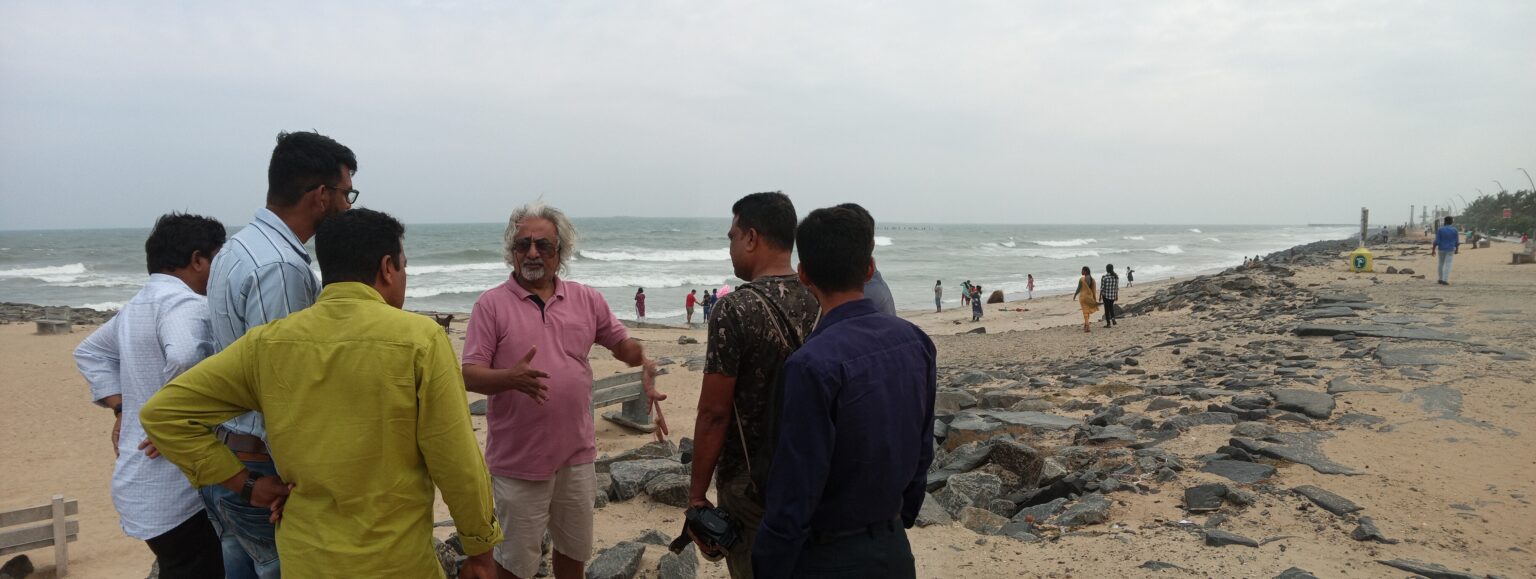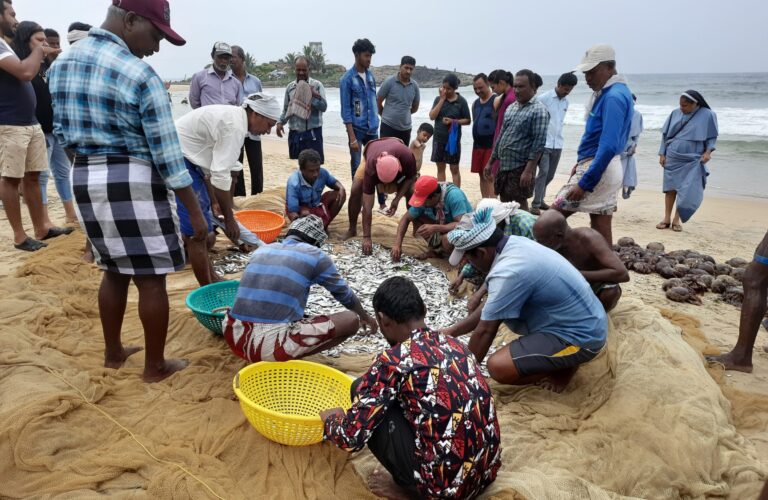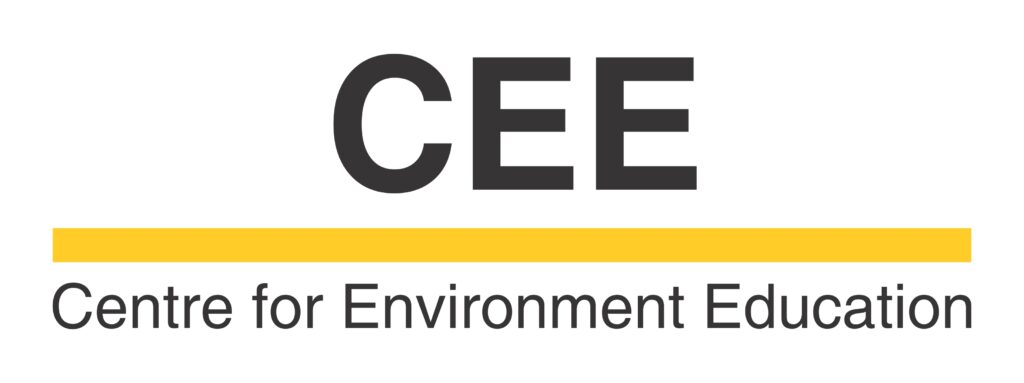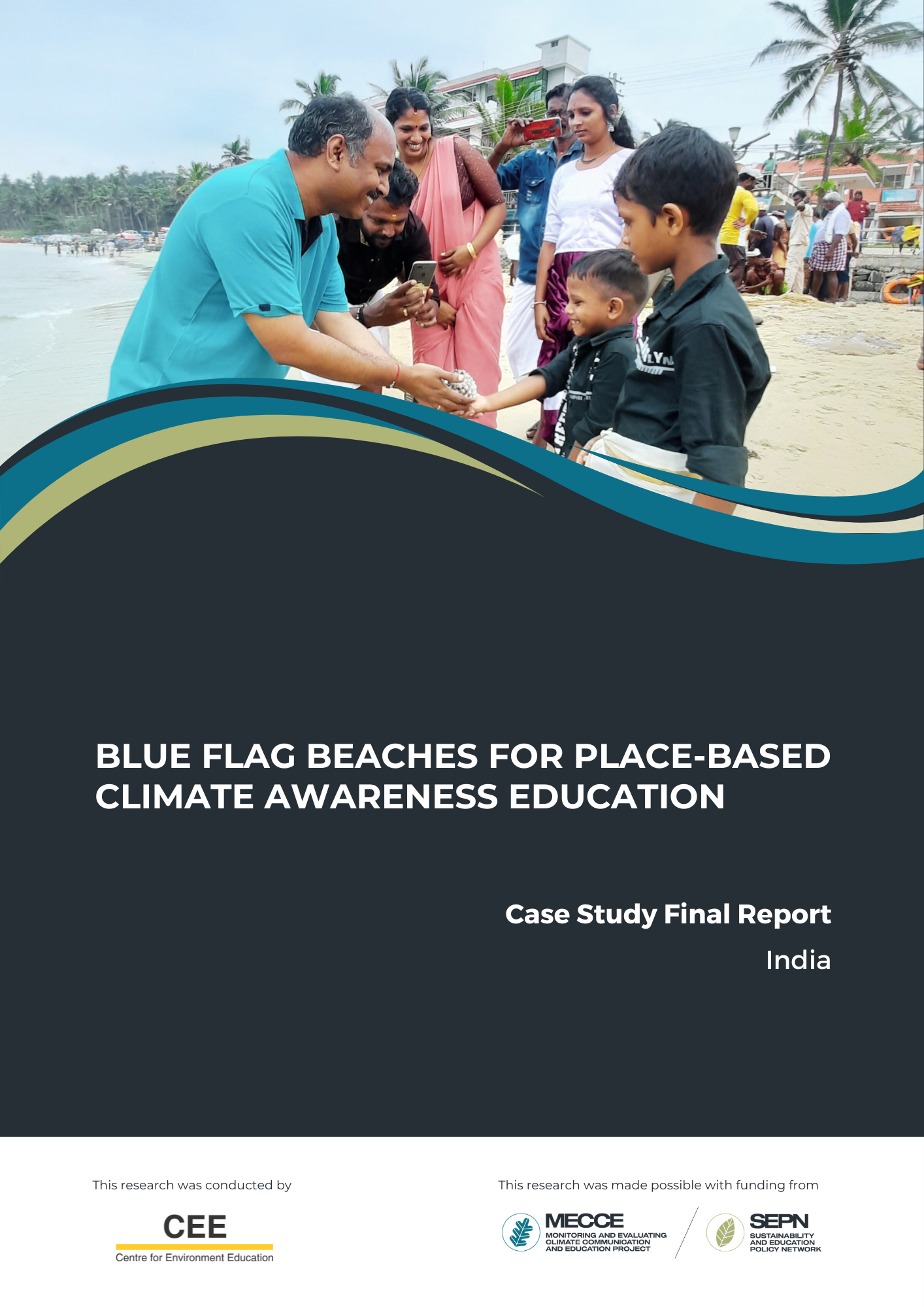Country: India
SDG Region: Central and Southern Asia
CCE Types: Primary Education, Secondary Education, Higher Education, Public Awareness, Public Participation
The Centre for Environment Education is transforming beaches in India into learning laboratories to teach beachgoers about India’s climate vulnerabilities and the climate-related needs of the local community.
Harnessing Community to Develop Place-Based Climate Learning on Beaches
India is highly vulnerable to the impacts of climate change, increasingly experiencing sea-level rise, weather events, and cyclones in its coastal areas. The lives and livelihoods of coastal communities, many of them fisher people, are becoming increasingly affected by the impacts of climate change. In this case study, the Centre for Environment Education harnesses the educational value of beach and coastal settings.
The Centre for Environment Education is India’s national Blue Flag Beach operator. This program, offered by the Foundation for Environmental Education, aims to connect people with their surrounding environment through beaches. Blue Flag Beaches adhere to stringent environmental, educational, safety, and accessibility standards, and environmental education activities must be offered.
The case study demonstrates the power of using participatory action research to inform and iteratively co-create educational practice.

The multi-methods, multi-stage research began with a comprehensive literature review of existing local, national, and international coastal programs focused on sustainability, environmental, and climate change education. Through discussions with beach staff, educators, community members, beach visitors, civil society, and local administration officials, the researchers also collected diverse perspectives on ways to nurture beaches as educational sites. The findings helped identify ways to improve the environmental education activities currently being used, and then through observation and feedback, the activities were further refined to make them more place-based, collaborative, and action-oriented.
“The research informed the development of immersive, hands-on educational activities tailored to the Indian context's climate vulnerabilities and socio economic settings.”
The case study is also an example of how widespread community engagement and collaboration can be used to overcome local challenges. The research brought beach managers, staff, and workers together with beach visitors, school children, youth, elderly villagers, the National Cadet Corps Cadets, research organizations, college students, and civil society, to name a few! By engaging broadly and deeply with intergenerational stakeholders, different points of view and experiences enriched the research findings. This allowed cultural, local, and regional contexts, as well as Indigenous knowledges to be included in the educational activities. Interactions with local coastal communities and fisherfolk led the researchers to develop action-oriented educational approaches to help local communities deal with the psychosocial impacts of climate change.
“The beaches have become spaces of exploration, discovery, learning, and collaboration, addressing biodiversity conservation, waste management, energy efficiency, and sustainable tourism practices. Public perception shifted from viewing beaches as recreational spots to recognizing their vulnerability to climate pressures.”

This inclusive, respectful, and collaborative approach supported beach visitors and stakeholders to develop a sense of collective ownership and pride. The researchers discovered that sea level rise, shifting weather patterns, and disruptions to industries like fishing and tourism have resulted in communities experiencing financial insecurity. With some communities facing potential homelessness and cultural disruptions due to natural disasters like hurricanes and storm surges has come an increase in trauma and mental health issues. The researchers worked actively with local communities to understand their vulnerabilities. This learning allowed the beach managers to change their conservation practices, and the encouragement of active community participation has empowered these communities to adopt conservation, mitigation and adaptation measures.
The case study highlights the transformative educational potential of beaches as place-based learning sites. This participatory approach allowed the Blue Flag Beach program to be adapted to local community needs. The beach has become a pedagogical site that reveals the risks and vulnerabilities of climate change. Place-based activities are supporting beachgoers to develop critical thinking, self-reflection, community action, and collaboration skills. In this way, education through beaches can help to improve human understanding of the environment, raise awareness about the impact of human activities and climate change in nature, and ultimately foster community resilience and wellbeing through environmental management and sustainability practice.

The MECCE Project is grateful to the Centre for Environment Education for conducting this case study


INTERACTIVE DATA PLATFORM
Our interactive data platform provides users with the ability to analyze and visualize the MECCE Project’s case studies, country profile, and global indicator data.
Learn More about the MECCE Project

DIGITAL LIBRARY
Visit our open access repository for project materials, including policy briefs, factsheets, guidelines, infographics, reports, and videos.

GLOBAL CCE BLOG
We discuss emerging issues in climate communication and education to respond to the area's rapidly evolving policy environment and public discourse.

REGIONAL HUBS
Learn how to join our growing global network, which supports regional input and action on climate communication and education.

